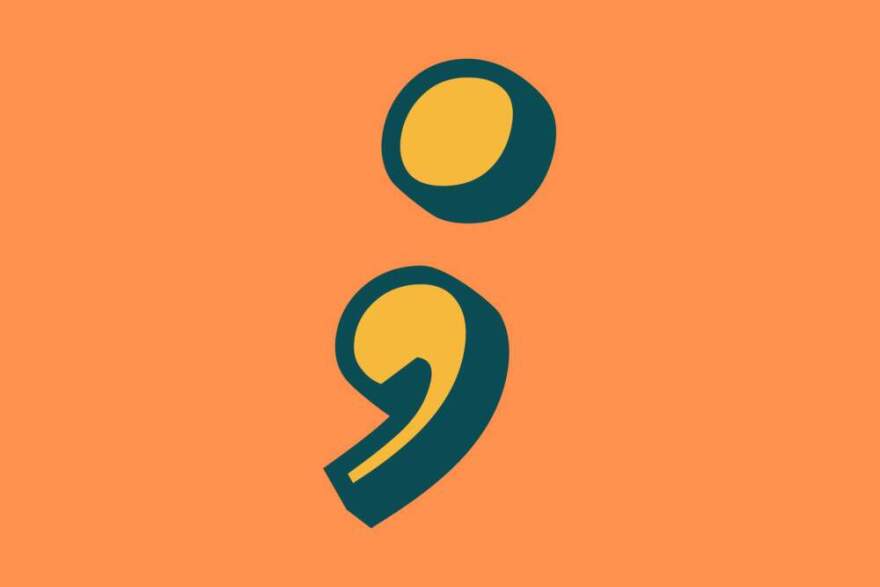
Updated July 31, 2025 at 5:39 PM EDT
The semicolon has been described as a “graceful pause” in writing. But this graceful punctuation mark is being forgotten.
Mark Lasswell wrote a recent piece on the semicolon and why it’s fading away for the Washington Post, where he is an associate op-ed editor.
6 questions with Mark Lasswell
What are semicolons? Why are they useful?
“They’re stronger than a comma. They are a way of separating two connected, but independent clauses, like the one about happy families and unhappy families, they could stand alone as sentences, but the semicolons show you these two things are going to be connected.”
The semicolon began in print in 1474. Its use in books has fallen by half in just two decades. What do you think is going on here?
“It’s really interesting. I mean, if you look at Ngram Viewer on Google, which has digested millions of books, and you can search the frequency of even punctuation, it’s been in a sort of steady decline since 1800. Across two centuries, it’s been dropping and now it’s really like, just dropped off a cliff. It seems that people more and more think of it as like this fancy punctuation. Like Kurt Vonnegut said, ‘Don’t use semicolons. All it does is show people that you went to college.’”
With text messages and Slack for work, are we using language in a different way these days?
“Yeah, and I think also it is grammar is taught less and less in school. So I think if you don’t have [it] sort of imprinted when you’re young, then it’s not like a tool you use when you’re writing. And then when you’re writing texts or whatever, then it all just goes out the window anyway. But even in their more formal writing, I think that’s one reason why people don’t use them anymore.”
Are you sad to see the semicolon go, or is it just a thing that happens?
“I think it’s kind of sad because, I mean, I admit I don’t use them as much as I probably should if I thought about it, but it seems like people now more and more throw in a dash where a semicolon would work perfectly nicely and take up less room. The use of dashes is like, as an editor, I see it more and more, it’s just like a lumberyard. So many of these planks being thrown into people.”
Would a semicolon in many cases would be better in your view?
“Yes, I think it would be more elegant and give some variety to the appearance of your paragraphs instead of having all these dashes in there. And they say that apparently with Chat GPT, they’ve noticed that you can detect Chat GPT-written stuff because it uses so many dashes that that’s one of the giveaways.”
What do you say to people who might think this conversation is a waste of time?
“I think that with writing anything, you know, if you think of it like a carpenter, like the nails and screws and braces and everything that they use as a carpenter, that’s what punctuation is. That’s what holds everything together. So yeah, you could probably just use, you know, the same box of nails every time you’re building some furniture. But it’s just more subtle and interesting if, and you could do better work. I think if you have the full range of tools.”
This interview was lightly edited for clarity.
____
Julia Corcoran produced and edited this interview for broadcast with Todd Mundt. Allison Hagan adapted it for the web.
This article was originally published on WBUR.org.
Copyright 2025 WBUR
